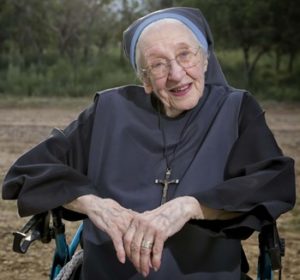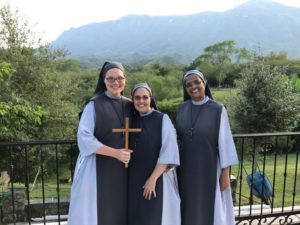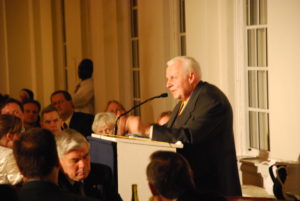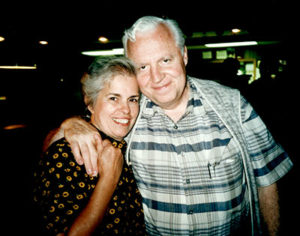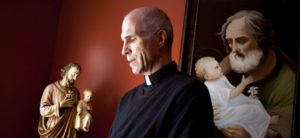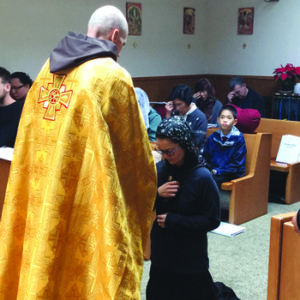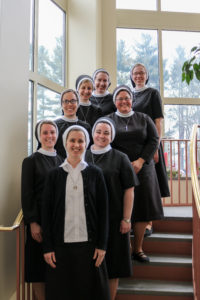The Vocation to the Eremitical Life
By Sister Janet of Beit Mery Hermitage
Soon after the conversion of the Emperor Constantine and his legalization of Christianity in the Edict of Milan in the year 314 CE.,  Some Christians began to feel that the spiritual fervor that was present during the Age of Martyrdom was being lost because of the ease of life after the Edict of Milan.
Some Christians began to feel that the spiritual fervor that was present during the Age of Martyrdom was being lost because of the ease of life after the Edict of Milan.
Men and women began to go into the deserts of Egypt and Palestine to enter into solitude and silence, fasting and prayer under the direction of an Abba or Amma who had lived the life longer that the neophyte and could help them live a life sacrificed to Jesus Christ. Many in the Church at the time considered this to be a type of “white” martyrdom, meaning that although these hermits were not physically martyred that they were in a certain way “dead” to the world.
The Hermit Life is the oldest form of consecrated life in the Church. In our Christian literature one of the first biographies of a hermit is by St. Athanasius in his Life of Antony, there is also the codex of the writings the Desert Fathers and Mothers, and the life of St. Mary of the Hermit.
In the Eastern Church, Hermits have been present throughout Christian history, principally on Mount Athos but all over the Eastern Church. In the West there has been a flourishing and then an almost extinguishing of the eremitical life over the history of the Church. The flourishing in the 4th century almost died out in the 7th century and then by the 11th century two great orders of hermits arose that are still present in our Modern Church, the Camaldolese Benedictines and the Carthusians. There were others, like the Premonstratensians who were hermits at the beginning but changed rapidly into canons regular. Today they are known as Norbertines.
In the 20th century, because of the writings of Thomas Merton, there has been renewed interest in the eremitical life both within and without of religious communities. In 1983 with the promulgation of the New Code of Canon Law in the Roman Church there was a new code within the codes on Consecrated life.
Canon 603 provided for individuals who are called by God to the eremitical life to make public vows under the local bishop as Diocesan Hermits.
I was call to Contemplative life on the Feast of Saint Clare (August 11) at 6:03 am in 1972. I never, ever wanted to be a nun. I had grown up in the Middle East and seen too many missionaries promote Western values under the guise of Christianity without honoring the values and history of the people who lived there. I wanted to get a degree in Middle Eastern Studies and go back there to live.
So, at 6:03 that morning in the chapel of the Holy Spirit Adoration Sisters in Austin, TX I heard God say to me, “This is the life I want for you, a contemplative life.” I was stunned. God had never spoken to me so directly. I have never been able to deny the experience. My response could only be “yes”.
By November of 1972 it was clear through another revelation, that God wad calling me also to the eremitic life.
It took thirteen years of disappointments, challenges, struggles, and continual discernment to confirm the call. In the meantime, I got a BSN in Nursing, so I could make a living. I was able to get a Master’s Degree in Christian Spirituality because over the years I had met people who wanted to be hermit or who claim to be hermits because they did not want any accountability.
I always felt that my vocation came out of the praying community and for the community and because of that, there needed to be accountability both on my part and on the community’s part. The only way that could happen was if I became a Diocesan Hermit with Public Vows of Obedience, Chastity and Simplicity of Life according the Gospel of Jesus Christ.
So, at the end of much discernment and confirmation, I wrote to Bishop John Cummins of the Diocese of Oakland for permission to make perpetual vows as a Diocesan Hermit. He said yes and I made my profession in 1985.
I lived as a hermit for 14 years in the Oakland Diocese as an urban hermit. In 1996 I began to seek a quieter place for my hermitage on the West Coast. I ended up in the Yakima Diocese since I knew the bishop there. I celebrated my transfer of vows on March 25, 1998 at St. Joseph Church in Yakima, Washington.
The hermit life has been a great grace for me. That being said, it is not a life for those who are not called to it. For those who are not called to it, it can be a descent into hell, a descent to madness—both spiritually and psychologically. At its best it is a life of sacrifice for others.
My mission is to pray for all those who message their peace by their distance from violence. It matters not to me whether that violence is interior (those things people tell themselves that demean themselves) or exterior violence such as the violence in the Middle East or anywhere else—trafficking or gangs. If we don’t heal the inner violence it will erupt in exterior violence at some point. If we are to have PEACE IN THE WORLD WE MUST BE PEACE FOR OTHERS.
To this day we do not know how many diocesan hermits there are in the US much less in the world because the bishops have never taken a count of Diocesan Hermits in this country or the world. In the state of Washington, I know there are at least 4 hermits but there may be more.
Know that I pray for all the readers of Religious Life magazine. Please pray for me to God that I may persevere in the gift of my vocation to the end.
Like this:
Like Loading...




